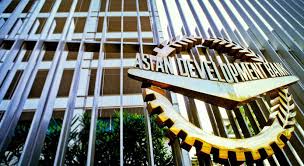
THE Asian Development Bank (ADB) proposed to set up a regional hub to promote better cooperation on tax policy and administration across the region.
“I would like to call for the establishment of an effective regional hub on domestic resource mobilization and international tax cooperation in Asia and the Pacific. This hub will serve as an open platform where countries and development partners can collaborate closely to share experiences and practical knowledge, and coordinate on development support,” ADB President Masatsugu Asakawa said in one of the webiners held at the bank’s 53rd Annual Meeting.
He said this will also help in knowledge sharing to raise tax collections and stimulate economic activity; promote international standards against base erosion and profit shifting (BEPS); and promote tax transparency.
“I firmly believe that one of the keys to success in achieving the Sustainable Development Goals (SDGs) in a world reshaped by COVID-19 (coronavirus disease) will lie in strengthening domestic resource mobilization (DRM) and international tax cooperation (ITC),” he said.
He said the proposal also aims to mainstream DRM and ITC in the bank’s operations via its technical assistance and other financial instruments.
The bank also committed to support the action plans of governments to set medium-term revenue strategies, he said, noting that the ADB could also aid in the technology transformation of revenue agencies.
Mr. Asakawa said the Asia-Pacific is the only region that does not have a pan-regional tax association to discuss international and regional tax issues.
He said governments are usually reluctant to “have their hands tied” by entering international tax agreements.
“But this is a false choice, because stepping away from international tax cooperation for the sake of protecting sovereignty will serve to erode sovereign powers by making BEPS and tax evasion easier,” he said.
Some 27 of 45 ADB-member countries participate in the Inclusive Framework on BEPS, he said, while 19 are not yet part of the Global Forum on Transparency and Exchange of Information for Tax Purposes, which encourages transparency and automatic information exchange of tax matters.
“The failure to engage in international tax cooperation will result in unilateral tax measures by many governments, which can lead to an increased chance of double or triple taxation. This will definitely undermine cross-border trade and investments,” he added.
As the pandemic continues to pressure government revenue, Mr. Asakawa said governments will have to prepare for increased public debt to plug widening budget deficits, while ensuring access to additional financial resources in case there is another outbreak wave.
He said the average tax take of countries in developing Asia of 17.6% of gross domestic product, and the Southeast Asia rate of 15%, significantly underperform the levels achieved by Organisation for Economic Co-operation and Development, where the tax take is equivalent to 24.9% of its members’ economies.
“Furthermore, due to decreasing tax revenues and increasing expenditures as a result of the pandemic, many of our developing members have little room to increase their external debt further,” Mr. Asakawa said.
“These figures remind us of the importance of broadening the tax base and enhancing tax compliance. At the same time, we must also address the issue of DRM from a wider perspective,” he added. — Beatrice M. Laforga


